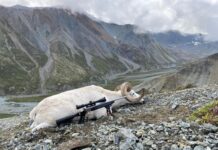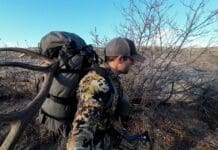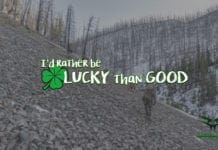
Outdoor activities are often some of Nature’s most life-changing experiences, but hunting is especially peculiar in this sense because more than all the rest, it absolutely is not meant for the faint-hearted. We feel the wild in our guts and as a matter of fact, even the bravest souls amongst us have experienced intense anxiety and the occasional doses of fear while hunting from time to time. Although fear can be good here (because it keeps you on your toes), things can always go wrong. Supplies can get misplaced, unexpected injuries happen, and the lack of a seemingly insignificant item can make all the difference between life and death.
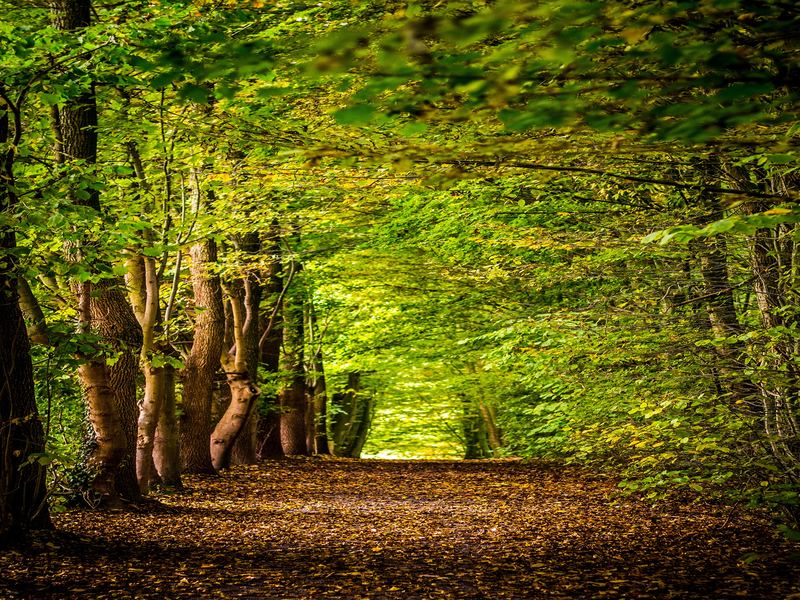
Not For The Fainthearted
This feeling of dread, on some hunting trips, only intensifies the deeper we go, as we trade the guarantee of food or shelter for Nature’s painful lessons in procuring them. When you engage with nature in this raw way, you’re more or less lifting up the veil of various layers of modernization that we’ve imposed on ourselves. If you know how to stay warm, make shelter and feed yourself, the anxiety that comes with emergencies in the woods will leave you more or less unaffected. And if you had started off prepared, you’re are sure to experience that feeling- a sense deep calm that emerges when you know you have tiptoed up to the abyss and peek over the edge without falling in. Like I said, not for the faint-hearted.
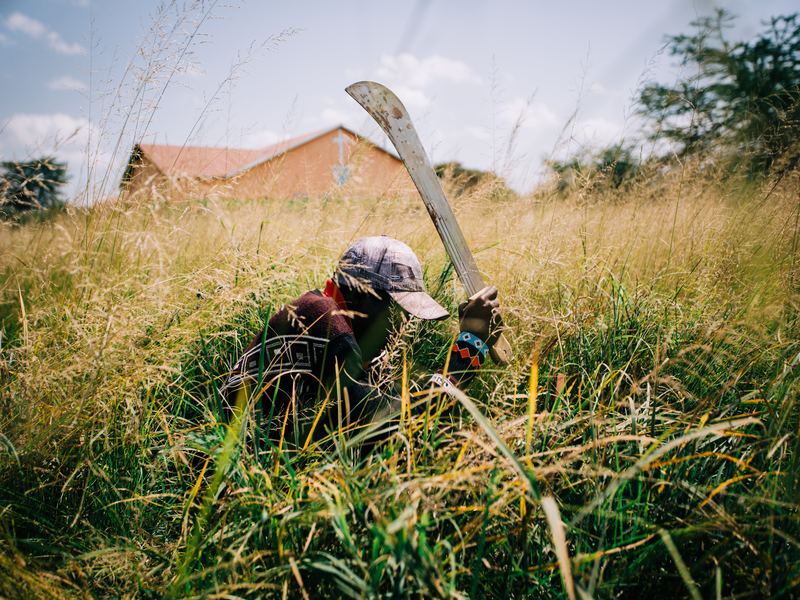
Native Possibles Pouch
Now every good hunter knows that the best defense to a great many hunting emergencies is being prepared for them, and African hunters are no exception. We generally do not have the benefits of high-tech devices and technologies, and so we almost always rely on age-long kits and tricks when we hunt. For instance, most native hunters across this Continent still use miniature pouches (as opposed to proper backpacks) made of leather from animal skin to carry their basics while hunting.

On the one hand, this is due to the fact that most of these natives spent their whole lives in the rural areas and can barely afford to purchase backpacks and such for hunting- an activity they’ve engaged in with the same storage pouches all their lives. But on the other hand, it is firmly rooted in our belief that a cardinal rule of hunting is that one must remain light and nimble on one’s feet. The pouches are made from the leather of animal skin. Their small sizes ensure that we carry only the most basic supplies.

African Hunter’s Dagger
The first item worthy of mention here is the African traditional hunter’s dagger. This dagger is the constant occupant of a native hunter’s pouch for all the reasons we require little knives when hunting, including their peculiar ability to lop off limbs or disembowel dangerous animals with a single blow. The most popular among hunters here is the leaf-shaped little blade with a relatively rounded point. The Massai and Kikuyu hunters of Kenya refer to this as the ‘seme dagger’ with its blade made of steel and the scabbard made of raw cattle hide. It’s deadly and almost always comes in handy.
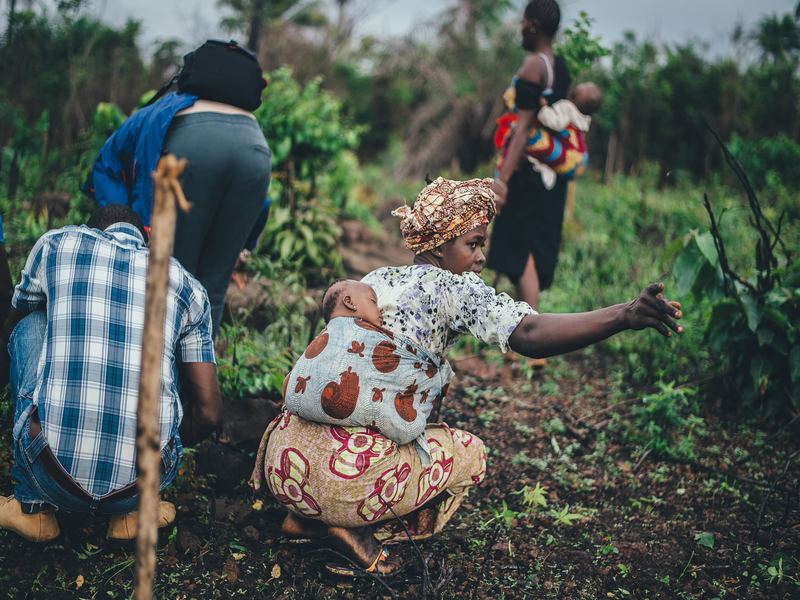
No Freeze Dried Food Here
Food makes the cut but only in meager quantities because all hunters are invariably great foragers. In fact, around here hunters who cannot scavenge for all sorts of edible stuff -plants, seeds, and whatnot- are generally considered weak and not welcome into any hunting band. Our communities eat leaves, roots, fruits, and wild grain as a matter of course anyway so surviving without home-packed food on a hunt is a no-brainer.
Native Charms
Various types of charms and amulets also find their ways into these pouches because they are important parts of a traditional hunter’s life, from birth to death. They are obligatorily worn in some stages of life and are considered sacred objects in African culture and are believed to be endowed with powers that defend against specific misfortunes, accidents, and such.
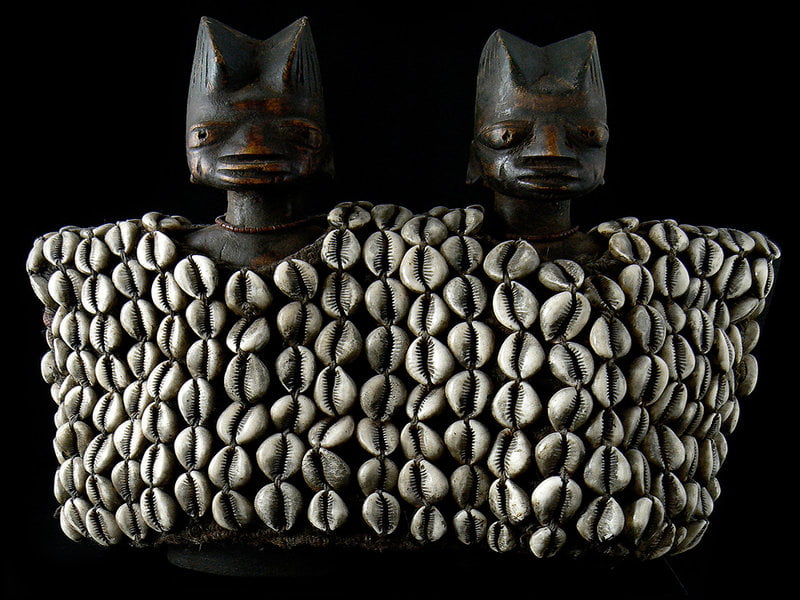
For instance, native hunters around the Yoruba and Ekiti areas of Nigeria (which so happens to be my homeland) wear hunting tunics upon which charms are sewn or attached, believed to assist them immensely when they hunt the woods. This belief is central to the daily lives of the people in these regions because it embodies their faith in the invocation of a higher power, or in benefitting from a fuller measure of the same power.
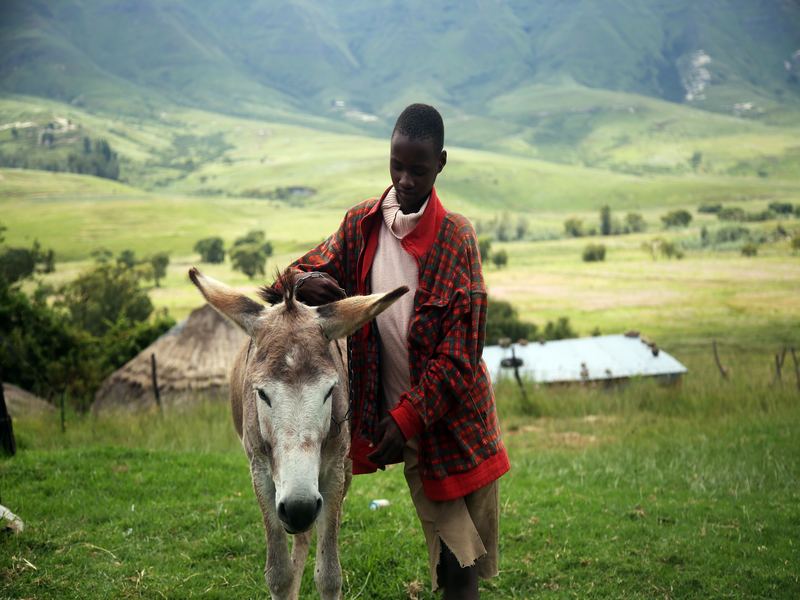
Similarly, the Dozo natives who live and hunt along the south-eastern parts of Mali believe that their hunting amulets possess supernatural properties that protect them from harm, and amplify their vision and hearing in the woods. They purify themselves with rituals before a hunt and if certain wild animals are killed, the Dozo hunters perform rituals afterward to enable them to share their bounty with the non-hunters in the communities. For all these reasons, charms are indispensable on a traditional African hunt.
Water For The Hunt
We carry small water canteens too but we rely a lot more on our honed natural skills to find water when we run out. Our forests are by definition “wet” places; we can drink from green bamboo and in extreme emergencies, we’ve perfected the art of collecting rainwater or the morning dew using wide tree leaves. Also, the tracks of the animals we hunt can lead us to clean streams.
Light and Quilt
The last items in a local hunter’s bag here would be a battery-powered flashlight, along with the tunic or knitted quilt he/she throws around his/her shoulders to keep out the chill. Anything else is considered unnecessary baggage and frowned upon by the native hunters here, as there is an ever-present need to reserve one’s strength for the game to be carried back to camp at the end of the expedition.
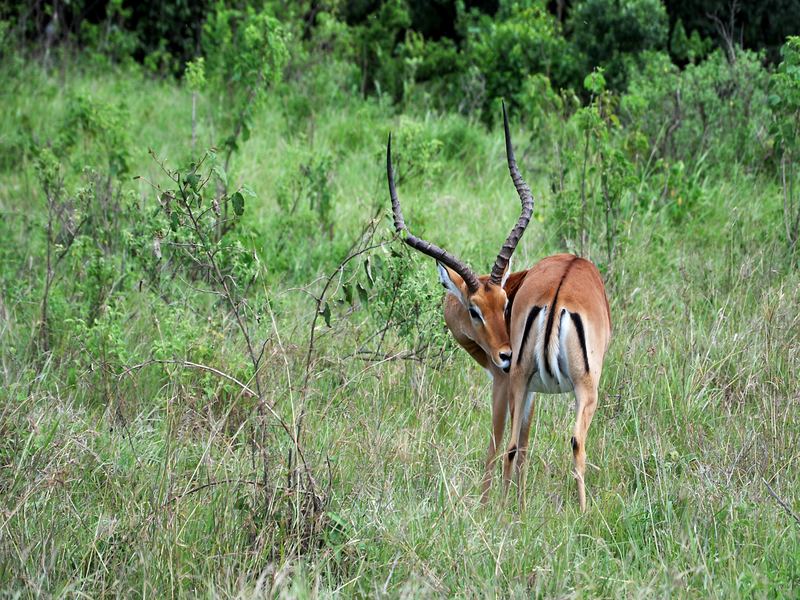
Medicines
Now as much as we rely on the barest basics of our hunting kits, native hunters here have loads of help from an array of survival tricks honed over the years. We have walked the fine balance created by these two and for the most part, we’ve benefited from the experience for generations on end. For instance, the bark of the copal tree is applied to ease simple eye infections, and crushed aromatic leaves can be inhaled to alleviate colds and nausea while in the woods.
Communication
Traditional hunters along the Congo Basin communicate with different groups when on a hunt through a complex signal system of stick and leaf symbols. This way, they relay such messages as, “the person passing here was injured” so that help can always be available to any hunter in need. They can also mimic the cry of a reindeer calf looking for its mother or the bark of a rutting male.
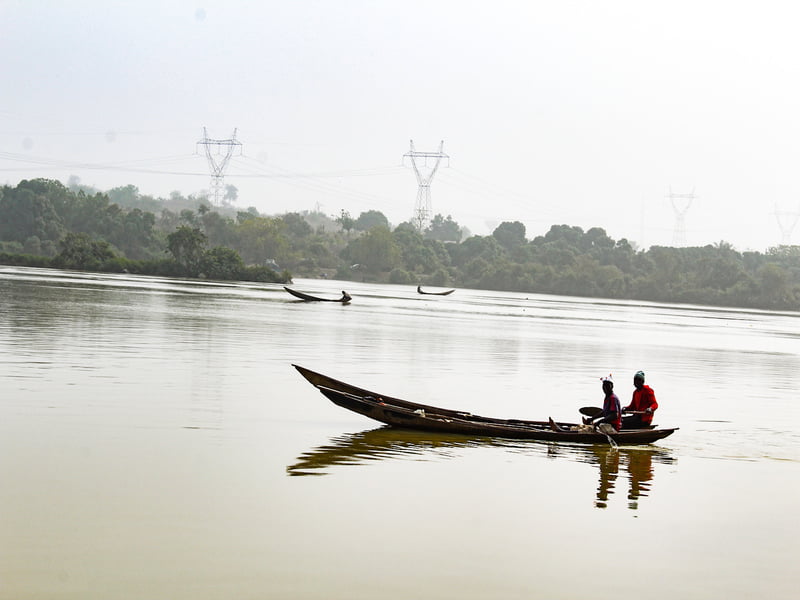
There’s more. Fishermen around here tend to see clearer when underwater than on land while for their part, the native hunters in Botswana can easily find water in ‘pans’ – rain-filled depressions in the sand. They do this through techniques they’ve perfected over years from surviving in the desert during the dry seasons after the water-holes of the Kalahari sand-face turns to dust. For their part, the Hadza hunter-gatherers (whose primary meal till this day remains raw honey) enjoy a mutually helpful relationship with the honey guide bird, which leads them to wild bees’ hives.
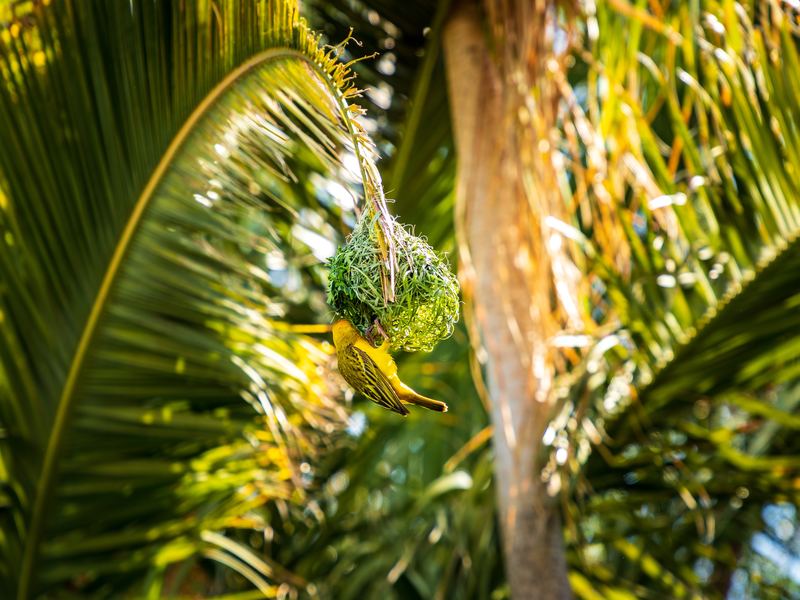
Listen To The Animals
The bird calls to the hunters, who whistle back to it. It flits from tree to tree, stopping to wait for hunters to catch up, until it eventually leads them to a hive, often high in the boughs of a baobab tree. The hunters then climb the tree and with burning grass, smoke the bees out from the hive. The bird is rewarded with the honeycomb leftovers; because responsibility and reciprocity are vital requirements for survival in the woods. I heard an old Hadza saying once, “no matter how far lost you are, the honey guide will find you and lead you safely home”.
Spiritual Powers
In my native community, it is believed that Ala–the sacred feminine and Earth goddess–gifts select hunting bloodlines the spiritual powers to shapeshift into various animals while on a hunt. This might seem mind-boggling to you so I’ll take that again. In my community, some hunters have the ability to take the shape of the animals they hunt as a means of fooling the animals as well as keeping members of their hunting bands safe. Wild, but true.
Certain families in my community (to date) still retain this gift and it gets stronger or weaker depending on a generation’s affinity for hunting. Unfortunately (or fortunately as far as my Mom believes) this ability wasn’t bestowed upon my bloodline regardless of how badly we craved it.
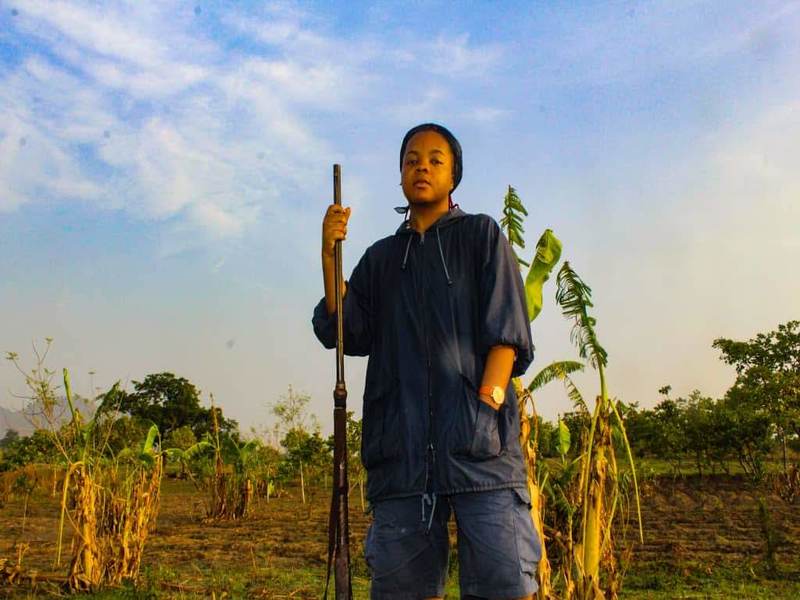
All these go to show why native hunters on this continent still know better than most that the delicate balance of man and nature is best maintained through respect for its limits as well as ours. Armed with the barest supplies and a handful of tricks, these traditional hunters continue to defend their lives and protect their lands, to ensure that their extraordinary skills and knowledge, still so relevant today, are not lost to the world.
You can comment on this article or ask Linda questions here.







